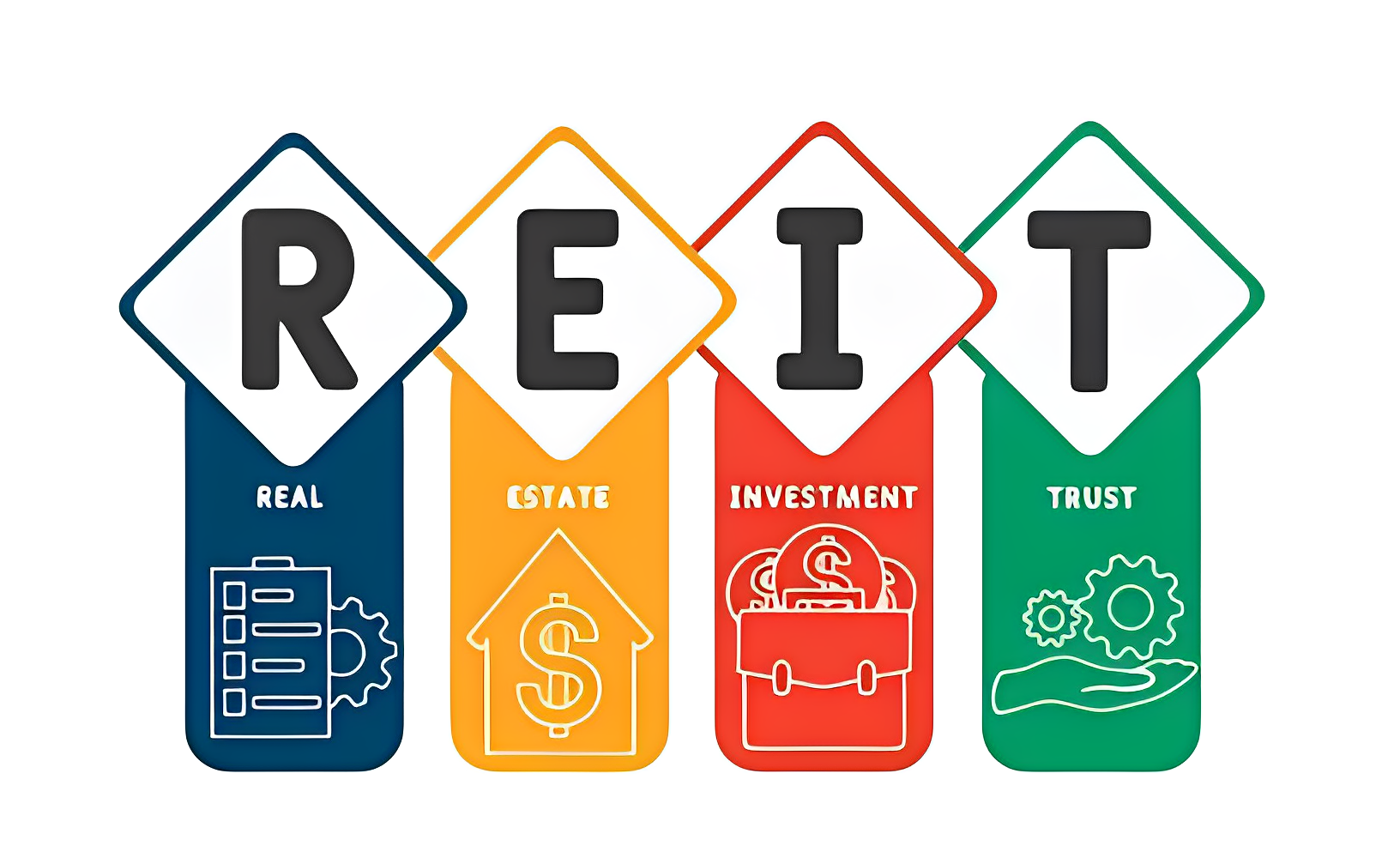If you are looking for a way to invest in the real estate sector without buying or managing any property yourself, you might want to consider REITs. But what is the meaning of REIT and how does it work? In this article, we will explain the concept of REIT, its benefits and drawbacks, and its types and features.
What is the Meaning of REIT?
REIT stands for Real Estate Investment Trust, which is a company that owns, operates, or finances income-generating real estate assets. REITs are modeled after mutual funds, which pool the capital of numerous investors and invest it in a diversified portfolio of securities. Similarly, REITs allow investors to buy shares in a portfolio of real estate properties and earn dividends from the rental income or interest income generated by those properties.
REITs were introduced in the US in 1960 as a way to make real estate investment accessible and affordable to the general public. Since then, REITs have become popular in many countries around the world, including India. India launched its first REIT in 2019 and currently has three listed REITs, namely Embassy Office Parks REIT, Mindspace Business Parks REIT, and Brookfield India REIT
Meaning of REIT: What are the Benefits of REITs?
REITs offer several advantages to investors, such as: Meaning of REIT
- Regular income: REITs are required to distribute at least 90% of their taxable income as dividends to their shareholders. This means that investors can receive a steady stream of income from their REIT shares, which can be higher than the interest income from fixed deposits or bonds.
- Capital appreciation: REIT shares can also increase in value over time, as the underlying properties appreciate in value or the REIT acquires more assets. This means that investors can also benefit from the capital gains from their REIT shares, which can be higher than the returns from stocks or mutual funds.
- Diversification: REITs can help investors diversify their portfolio, as they have a low correlation with other asset classes, such as stocks, bonds, or gold. This means that REITs can reduce the overall risk and volatility of the portfolio, and enhance the risk-adjusted returns.
- Tax efficiency: REITs are exempt from corporate tax, as long as they distribute at least 90% of their income as dividends. This means that REITs do not have to pay any tax on their income, unlike other companies. This also means that investors do not have to pay any tax on the dividends received from REIT shares, unlike other dividends. However, investors may have to pay capital gains tax on the sale of REIT shares, depending on the holding period and the tax slab.
- Professional management: REITs are managed by a team of professionals, who have the expertise and experience in the real estate sector. They are responsible for selecting, acquiring, operating, and maintaining the properties, as well as raising funds and distributing dividends. This means that investors do not have to worry about the hassles and challenges of owning and managing real estate themselves.
Meaning of REIT : What are the Drawbacks of REITs?
REITs also have some limitations and risks, such as: Meaning of REIT
- Market risk: REIT shares are subject to the fluctuations of the real estate market, which can be affected by various factors, such as demand and supply, economic conditions, interest rates, regulations, etc. This means that REIT shares can lose value if the real estate market declines or faces a slowdown. REIT shares are also subject to the fluctuations of the stock market, which can be affected by various factors, such as investor sentiment, corporate earnings, global events, etc. This means that REIT shares can lose value if the stock market crashes or faces a correction.
- Liquidity risk: REIT shares may face liquidity issues, as they invest in illiquid assets, such as real estate properties, which can take a long time to sell or buy. This means that REITs may not be able to sell their properties quickly or at a fair price, if they need to raise cash or exit from an investment. REIT shares may also face liquidity issues, as they depend on the availability and cost of debt and equity financing, which can vary depending on the market conditions. This means that REITs may not be able to raise funds easily or cheaply, if they need to acquire new assets or refinance their existing debt.
- Regulatory risk: REITs are subject to the regulations and compliance requirements of the authorities, such as SEBI, RBI, etc. These regulations and requirements can change from time to time, and affect the operations and performance of REITs. For instance, REITs have to follow certain rules regarding the minimum asset size, minimum public float, minimum distribution, etc. These rules can limit the flexibility and growth potential of REITs. REITs also have to comply with the accounting and reporting standards, which can affect the valuation and transparency of REITs.
Meaning of REIT : What are the Types of REITs?
REITs can be classified into different types based on the nature of their assets, the way they are traded, and the way they generate income. The following are the main types of REITs:
- Equity REITs: These are the most common type of REITs, which own and operate income-producing real estate properties, such as office buildings, shopping malls, apartments, hotels, etc. They generate income mainly from rents and capital gains from property sales.
- Mortgage REITs: These are REITs that lend money to real estate owners or invest in mortgage-backed securities. They generate income mainly from interest and fees from loans and securities.
- Hybrid REITs: These are REITs that combine the features of both equity and mortgage REITs. They invest in both real estate properties and mortgage loans or securities. They generate income from both rents and interest.
- Publicly traded REITs: These are REITs that are listed and traded on major stock exchanges, like any other public company. They offer high liquidity and transparency to investors, but also face higher volatility and competition.
- Public non-traded REITs: These are REITs that are registered with the SEC, but are not listed or traded on any stock exchange. They offer lower liquidity and transparency to investors, but also face lower volatility and competition.
- Private REITs: These are REITs that are not registered with the SEC, and are only available to a select group of investors, such as institutional or accredited investors. They offer the lowest liquidity and transparency to investors, but also face the lowest volatility and competition.
Meaning of REIT : How to Invest in REITs?
Investing in REITs is similar to investing in stocks or mutual funds. Investors can buy and sell REIT shares through a broker or an online platform. Investors can also invest in REIT mutual funds or ETFs, which are funds that invest in a basket of REITs, either directly or through other funds. Investors can also invest in REIT index funds or ETFs, which are funds that track the performance of a REIT index, such as Nifty Realty Index or S&P BSE Realty Index.
Before investing in REITs, investors should do their homework and research the following aspects of the REITs: Meaning of REIT
- The quality and performance of the underlying properties, such as the location, occupancy, rent, maintenance, etc.
- The financial health and governance of the REITs, such as the balance sheet, income statement, cash flow, debt, dividend, etc.
- The growth prospects and competitive advantages of the REITs, such as the acquisition pipeline, expansion plans, market share, etc.
- The valuation and returns of the REIT shares, such as the price, earnings, yield, NAV, etc.
- The market conditions and trends of the real estate and stock sectors, such as the demand and supply, economic outlook, interest rates, regulations, etc.
Meaning of REIT : Investors should also consider their risk appetite, investment horizon, and income goals before investing in REITs. REITs are suitable for investors who are looking for regular income and long-term capital appreciation from the real estate sector, but are also willing to bear the market risk, liquidity risk, and regulatory risk associated with REITs.
Meaning of REIT
- 3 Listed REITs Stocks In India 2021
- Real Estate Investment Trust (REIT): How They Work and How to Invest
- REIT | English meaning – Cambridge Dictionary
- Real Estate Investment Trusts (REITs) | Investor.gov
- REIT India Consultants Private Limited
Unlocking Potential Understanding the Minimum Investment in REITs




